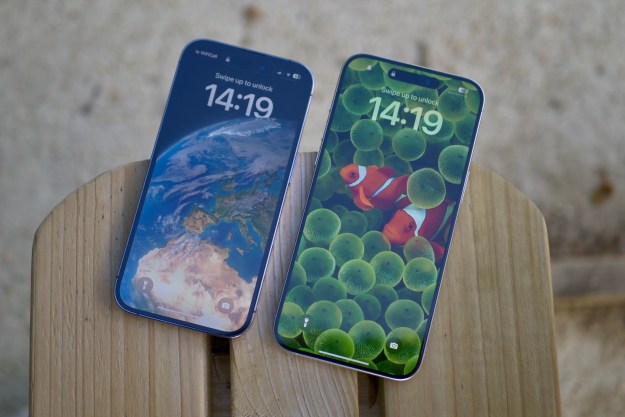At the end of 2017, Apple admitted to slowing down older iPhones to preserve battery life and stabilize performance. Customers were upset about Apple’s lack of transparency regarding the issue, and the company apologized by offering to replace batteries for a reduced fee.
But Apple later said that if it finds any phone damage that could hinder the replacement process, it will have to make the necessary repairs — and charge for them — before it can fit the battery. While that may sound reasonable, the company was quickly accused of being overly harsh in implementing the terms of the replacement service, with some iPhone owners claiming they’re being asked to pay large sums of money without good reason. So in an attempt to appease these folks, Apple is offering a $50 credit to those who paid for “an out-of-warranty battery replacement for iPhone 6 or later devices between January 1, 2017 and December 28, 2017.”
The credit will be awarded either as an electronic funds transfer or as a credit to the card used to pay for the battery replacement process. Keep in mind, however, that you must have purchased your battery replacement at an eligible Apple authorized service location to qualify for this refund. Folks who are affected by this rebate should receive emails from Apple sometime between May 23 and July 27, with further instructions on how to obtain the credit. If you don’t end up getting an email, but feel this was in error, you need to be sure to get in touch with Apple by the end of the year, with proof of service at an Apple authorized service location.
Previously, an investigation carried out by the BBC revealed a range of stories from U.K.-based iPhone owners who said that Apple has been finding “unnecessary faults” with their handsets, with the company refusing to replace the battery unless they paid for the repair first.
In the U.K., Apple reduced the fee for a new battery from 79 pounds ($107) to 25 pounds ($34) until the end of 2018.
Josh Landsburgh told the BBC he feels he’s been treated unfairly by Apple. Landsburgh said he sent away his iPhone for a new battery, but a short while later received an email from the company pointing out a small dent on the edge of the phone. The tech giant said he’d have to pay 200 pounds ($270) to fix the dent before it could replace the battery at the reduced fee.
Landsburgh refused to pay, and had the battery replaced locally without any issues. The action meant, however, that he voided his Apple warranty.
“They’re trying to regain trust and they come back to you with, ‘Give us more money than you were planning to initially,'” he told the BBC.
Phone fault?
Another customer, David Bowler, said Apple found a fault inside his phone — with the speaker and microphone — and told him he’d have to pay 250 pounds ($340) to sort it out before a new battery could be fitted. Bowler insisted there was nothing wrong with his phone, a claim verified by the BBC when it sent the handset to an independent repair specialist.
On its website, Apple states: “If your iPhone has any damage that impairs the replacement of the battery, such as a cracked screen, that issue will need to be resolved prior to the battery replacement.” But the BBC’s investigators suggest that in some cases, the phone’s fault — if indeed there is one — has no apparent effect on the battery-replacement procedure, and that in light of the controversy that prompted Apple’s discounted offer, the company should be willing to deal with the issue in a more favorable manner.
While it would obviously be unacceptable for the company to “make up” faults with the phone, it would be equally concerning if it was charging customers for repairs that weren’t entirely necessary in order to replace the battery. With the BBC’s investigation having just been broadcast on a consumer affairs show, it will be interesting to see if the turmoil surfaces similar claims among others who have requested a new iPhone battery.
Battery bother
At the end of last year, Apple admitted to slowing down old iPhones. The company said it did so to preserve battery life and stabilize the handset’s performance, as a well-used battery could cause apps to suddenly crash.
Many iPhone owners were upset that Apple hadn’t been clearer about its actions when it began throttling older iPhones via a software update in 2016. Some accused the company of deliberately — and secretly — frustrating users with under-performing handsets to encourage them to fork out for an upgrade, a strategy known as planned obsolescence.
Apple has insisted the system is supposed to benefit customers’ user experience by preserving battery life and reducing the chance of sudden shutdowns with old phones. But the resulting backlash prompted the company to slash the cost of its battery replacement service for iPhones — in the U.S. from $79 to $29 — until the end of 2018.
With the introduction of iOS 11.3 in March, Apple gave owners of its handset more battery data as well as the option to disable throttling.
Updated on May 23: Apple is offering a refund to owners who purchased a battery replacement.
Editors' Recommendations
- Here’s how Apple could change your iPhone forever
- Everything you need to know about the massive Apple App Store outage
- We now know when Apple is adding RCS to the iPhone
- The DOJ has sued Apple over the iPhone. Here’s what it means for you
- UPS worker accused of nabbing $1.3M worth of iPhones and other Apple gear


